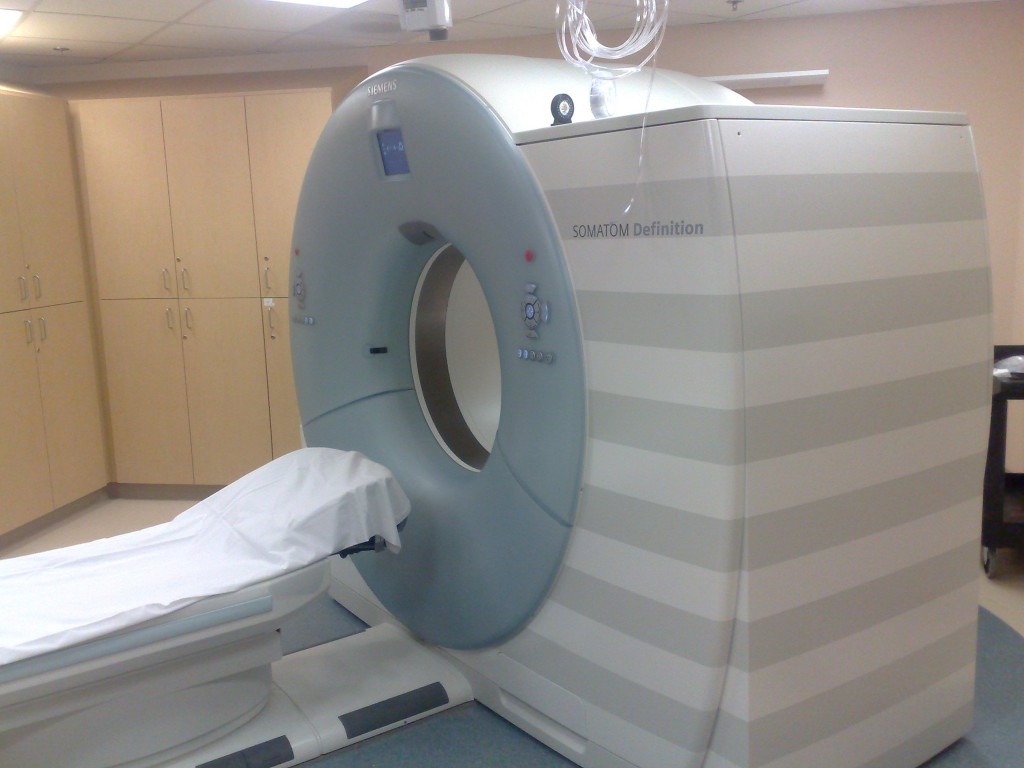
Will Reversing My Heart Disease with Ornish Lifestyle Medicine Change My Calcium Score?
Photo Credit: Briar Craft, via Flickr Creative Commons
“I am a 71-year-old woman with no health problems. Recently, I took a CT calcium score test and my doctor reports that I have calcification in the main artery of my heart. I can only improve my nutrition minimally because I have a healthy diet and I exercise to the max. Do you have an opinion about whether following your diet in a strict way would decrease the calcification and do you have an opinion about chelation therapy?”
In this question, there are many sub-questions that I will address in this post.
Ornish Lifestyle Medicine increases blood flow to the heart and decreases cardiac events.
Calcium accumulates in plaques that have been present for a longer period of time. Calcified plaques are measured by a CT scanner that takes pictures of the heart to map its arteries. The extent of calcified plaque is then graded according to a Calcium Score.
| Calcium Score | Presence of CAD |
| 0 | No evidence of CAD |
| 1-10 | Minimal evidence of CAD |
| 11-100 | Mild evidence of CAD |
| 101-400 | Moderate evidence of CAD |
| Over 400 | Extensive evidence of CA |
The calcium score is one of the few ways that we have available to assess likelihood of plaque without invasive tests like catheterization. There are limitations of this test, however. For example, it is not accurate in people under 50-years- old as their plaques have not been around long enough to calcify, it doesn’t measure plaques that are more recent, and it doesn’t measure changes in the more active part of plaques.
You can reverse heart disease with the Ornish Lifestyle Medicine program. The reversal is measured in two ways. We showed both plaque regression at one year and more at 5 years, and increased blood flow of 300 to 400%. The Ornish Lifestyle Medicine program works on the active part of the plaques as opposed to the plaques that have calcium which are not as metabolically active. So even though you have heart disease reversal and decreased heart events, it’s important to understand that this is happening on the more recent plaques, so you may or may not see the changes reflected in your calcium score.
Does Anything Decrease My Calcium Score?
In studies done on populations, people that have higher K2 levels have lower calcium scores, but it is not clear if increasing intake of K2 decreases calcium score, nor is it clear which subtype of K2 is most helpful. Further, it is not clear if decreasing the calcium score means you will have less risk of heart disease. There are many studies happening now to see if supplementing vitamin K2 changes heart disease risk.
I wrote about chelation in a previous article. A recent study looking at a treatment that includes chelation with added vitamins and antibiotics found that it changed calcium scores in about half the study subjects, but there is no long-term outcome data, so it is not known if it led to better outcomes or not.
Does Plaque in the Main Artery Differ From Plaque in Other Vessels?
You mentioned that your doctor said that you have calcification in the main artery to your heart. Plaque in the main vessel or the left anterior descending artery is more significant than other vessels because this vessel feeds so much of the heart muscle. If the decreased blood supply to this part of the heart has been severe enough to create heart failure, it is particularly important. People with left main artery disease and heart failure are at more risk for a bad heart rhythm during exercise and so it is usually treated more aggressively than other vessels that have plaques.
So, what can you do? There are four elements of the Ornish Lifestyle Medicine program. You mentioned that you exercise and eat well, but also consider stress management and group support, which are the other two important factors when it comes to reversing heart disease. There are also many people who come through our program thinking they are following the diet, but after experiencing the diet (See Ornish Kitchen sample menu) and getting the training, they discover that that they were only partly following the diet. This may or may not be true for you.
The take-home message is that calcium score is a marker of disease risk and interventions that change the calcium score have not been proven to affect long-term health outcomes. Making the changes we teach in each element of the Ornish Lifestyle Medicine program have been proven to reverse heart disease. This may or may not affect the calcium score, but increases blood flow to the heart and decreases cardiac events.






